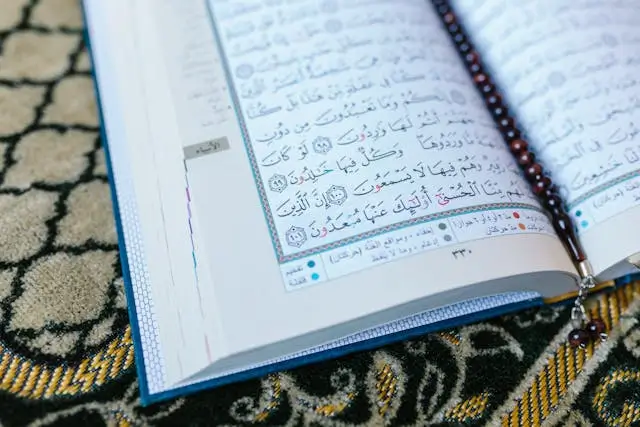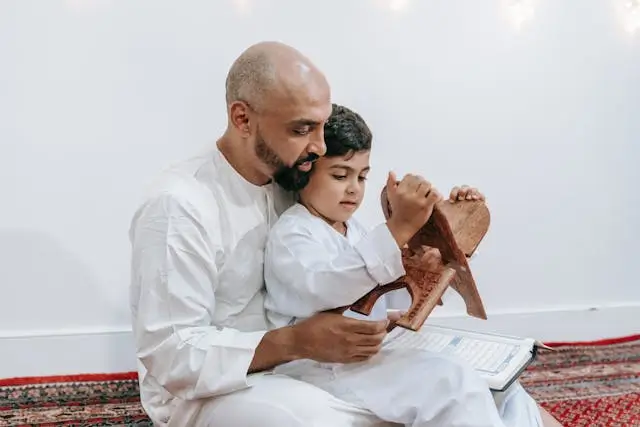Can Muslims Celebrate Christmas? – An Islamic Perspective
Every year, as December approaches, streets light up, festive songs fill the air, and Christmas becomes a global celebration. Many Muslims living in diverse societies wonder — can Muslims celebrate Christmas?
Understanding the Islamic perspective on this topic is essential to uphold faith while maintaining respect and harmony with others.
This article explores what Islam says about celebrating Christmas, the significance of respecting other religions, and how Muslims can maintain their beliefs while living peacefully in multicultural communities.

Understanding What Christmas Represents
Christmas is celebrated by Christians around the world to commemorate the birth of Prophet Isa (Jesus) عليه السلام. However, in Christianity, this event is often associated with the belief that Jesus is the “Son of God,” a concept that directly contradicts the core Islamic belief in Tawheed (the Oneness of Allah).
Islam honors Prophet Isa (عليه السلام) as one of the greatest Prophets — a noble messenger born miraculously to Maryam (Mary), but not divine.
Allah says in the Quran:
“He (Jesus) was no more than a servant: We granted Our favor to him and We made him an example to the Children of Israel.”
(Surah Az-Zukhruf 43:59)
Therefore, while Muslims love and respect Prophet Isa (عليه السلام), the religious aspect of Christmas does not align with Islamic teachings.
The Islamic View on Celebrating Non-Islamic Religious Festivals
Islam encourages kindness, respect, and peaceful coexistence with people of all faiths — but when it comes to religious celebrations, Muslims are guided to maintain their own distinct identity.
Prophet Muhammad ﷺ said:
“Whoever imitates a people is one of them.”
(Abu Dawood, 4031)
This hadith teaches Muslims to avoid participating in religious customs that conflict with Islamic beliefs.
While Islam allows sharing good wishes or being respectful, it discourages actively joining religious rituals or celebrations that symbolize beliefs contrary to Islam.
The Meaning of Celebration in Islam
In Islam, celebrations are not just about joy or gathering — they hold spiritual significance. Muslims have been blessed with their own festivals:
- Eid al-Fitr, marking the completion of Ramadan.
- Eid al-Adha, commemorating the sacrifice of Prophet Ibrahim (عليه السلام).
Prophet Muhammad ﷺ said:
“Every nation has its festival, and this is our festival.”
(Sahih Bukhari & Muslim)
These are moments of gratitude, reflection, and worship — rooted in submission to Allah, not in imitation of others.
Can Muslims Wish “Merry Christmas”?
This question arises frequently, especially among Muslims living in Western countries.
Islamic scholars have offered nuanced views:
- Some scholars discourage saying “Merry Christmas” because it implies approval of beliefs that contradict Islamic monotheism.
- Others permit it as a gesture of goodwill, provided it’s said without affirming any religious doctrine — much like saying “Have a pleasant holiday.”
The safest approach is to express kindness without compromising one’s faith. You might say:
“Wishing you peace and happiness this season.”
This reflects respect, not religious endorsement.
Respecting Others While Staying True to Islam
Islam emphasizes both firm faith and respectful coexistence. The Quran reminds us:
“To you be your religion, and to me my religion.”
(Surah Al-Kafirun 109:6)
This verse beautifully summarizes the Islamic attitude — Muslims should neither insult nor join the religious practices of others, but instead remain steadfast in their deen while showing compassion and respect.
Common Misconceptions About Muslims and Christmas
Many non-Muslims assume that avoiding Christmas means being unfriendly or intolerant — but this is far from true.
In fact, Islam teaches kindness to neighbors, giving gifts, and maintaining good relations with all.
Muslims can participate in neutral social acts such as:
- Sharing meals with neighbors (without engaging in religious rituals).
- Being part of community volunteering.
- Offering charity during the season — since helping others is always Islamic.
This shows that Muslims can still spread peace and kindness, in line with their faith.
What Can Muslims Do Instead?
For Muslims, this season can be a beautiful opportunity to reflect, educate, and strengthen faith:
- Learn more about Prophet Isa (عليه السلام) from the Quran.
- Discuss Islamic teachings on compassion and charity with children.
- Engage in family acts of worship like reading Surah Maryam together.
- Give gifts or perform sadaqah to spread joy in a halal way.
This keeps the festive spirit alive — in an Islamic, meaningful way.
The Balance Between Faith and Friendship
Living among people of other faiths requires wisdom (hikmah) and good character (akhlaq). Islam never teaches isolation or arrogance.
Allah says:
“Allah does not forbid you from those who do not fight you because of religion and do not expel you from your homes — from being righteous toward them and acting justly toward them. Indeed, Allah loves those who act justly.”
(Surah Al-Mumtahanah 60:8)
Thus, while Muslims refrain from celebrating Christmas, they can still maintain friendship, kindness, and mutual respect.
Teaching Children About the Islamic Stance
In today’s multicultural world, Muslim parents face questions from their children about Christmas trees, gifts, and Santa Claus.
Parents should gently explain that Muslims have their own beautiful celebrations — Eid al-Fitr and Eid al-Adha — gifted by Allah. This helps children develop confidence and pride in their Islamic identity without feeling excluded.
You can say:
“We respect our friends who celebrate Christmas, but Allah has given us our own special Eids full of blessings and joy.”
Conclusion: Holding Firm to Faith with Wisdom and Love
In essence, Muslims do not celebrate Christmas as it’s rooted in beliefs that differ from Islam. Yet, Islam teaches respect, kindness, and peaceful coexistence.
By understanding the essence of our deen and upholding our Islamic identity with gentleness, we can live harmoniously while staying true to Allah’s guidance.
“Whoever holds firmly to Allah has been guided to a straight path.”
(Surah Al-Imran 3:101)







